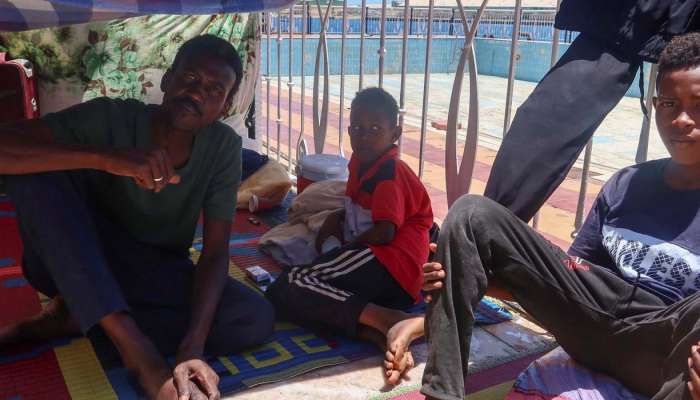
Khartoum: The death toll from ongoing clashes in Sudan has risen to 604 people, the World Health Organization (WHO) said on Tuesday.
About 5,100 people were injured, the organization's spokesperson Tarik Jasarevic told reporters.
The figures come as talks, brokered by Saudi Arabia and the US, continue between representatives of warring parties in the Saudi Arabian city of Jeddah to find a humanitarian truce.
But the talks are not aimed at resolving the conflict's most tense issues like the integration of armed forces that led to the conflict in the first place on April 15.
On Monday, the Saudi Foreign Ministry said the talks between delegations of both sides were expected to continue for a few more days.
More than 700,000 internally displaced
The UN migration agency said the numbers of those who were internally displaced by the nearly monthlong fighting has risen to 700,000.
The figures were on top of 3.7 million people who were already internally displaced before the conflict began, according to the UN agency.
Thousands more have fled to neighboring countries like Chad, Central African Republic, Egypt and South Sudan.
Many others are in their homes in capital Khartoum, as fierce battles between the Rapid Support Forces and the Sudanese Army turn urbanscape into battle zones.
There have been reports of looting and robbery. Civilians are bearing the brunt of the conflict as they're faced with a shortage of food and water supply as well.
On Monday, the Sudanese Doctors' Syndicate, which tracks civilian casualties, said the death toll stood at 487.
Cease-fires previously have failed to stop fighting
Multiple cease-fires between the warring parties have been regularly violated and has failed to stop fighting.
The conflict is rooted in the power tussle between Sudan's head of army, Abdel Fattah al-Burhan, and Rapid Support Forces (RSF) leader, General Mohamed Hamdan Dagalo, who is widely known as Hemedti.
The men were allies and played an important role in 2021 coup, but tensions rose between them since the coup.
The most recent tension that sparked the conflict stem from a disagreement over how the RSF should be integrated into the armed forces and the authority that should oversee the process.
The merger is a key condition of Sudan's unsigned transition agreement with political groups.